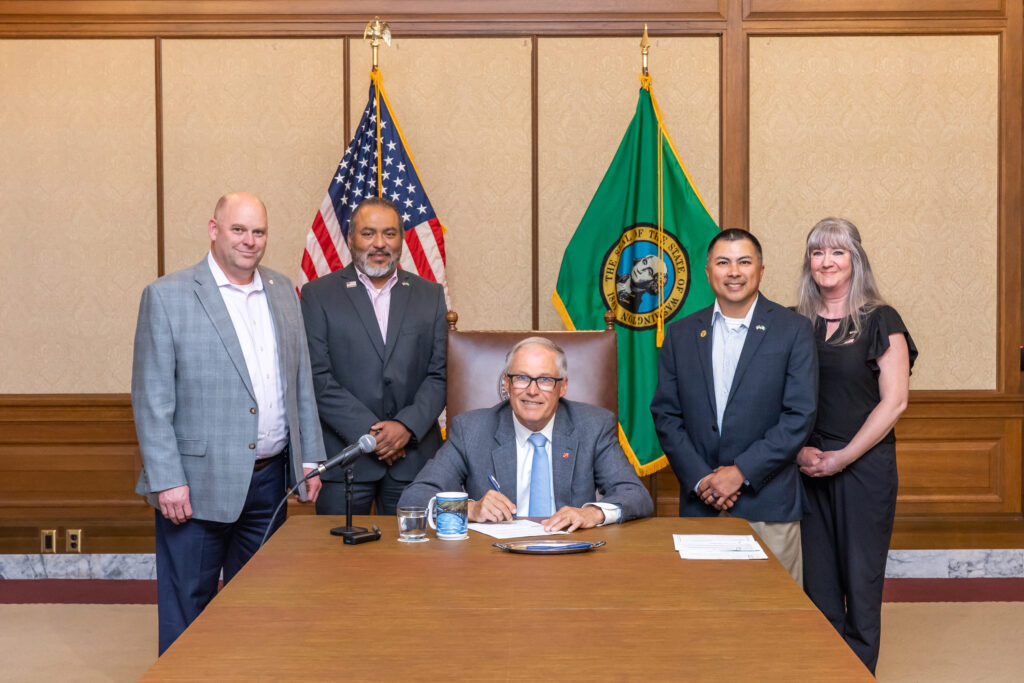Urban residents seek refuge at Shelton’s Turning Pointe shelter, other rural facilities
A bill to boost funding for rural domestic violence shelters, inspired by Shelton’s Turning Pointe facility, was signed into law Tuesday by Gov. Jay Inslee.
Senate Bill 5398 is part of a multi-year effort by Sen. Drew MacEwen, R-Shelton, to raise state allocations for rural shelters serving victims of domestic violence. The bill directs the Department of Social and Health Services to devise a new funding formula for shelters based on demand.
Currently shelters receive state funding based on county population – but that fails to consider the number of urban residents who seek refuge in rural areas, MacEwen said. “Shelton’s Turning Pointe shelter and others like it serve a larger client base than just Mason County,” he said. “Funding shouldn’t be based on population, but rather the number of people served.”
In 2022, MacEwen led efforts in the state House to provide an additional $750,000 to rural shelters based on bed capacity. In the Senate budget this year, MacEwen obtained an additional $1.5 million to cover them for the next two years. The new funding formula aims to make a more permanent fix.

MacEwen, left, at bill signing May 4 for SB 5323, with representatives from the state Department of Veterans Affairs and Gov. Jay Inslee.
Other MacEwen legislation signed into law by the governor includes:
- Senate Bill 5323, which requires the Washington Department of Veterans Affairs to appoint a nursing director at each of the state’s veterans’ homes, and makes other technical changes to veterans’ programs. This was priority legislation requested by the state Veterans Affairs department.
- Senate Bill 5448, which allows restaurants to continue providing alcoholic beverages for curbside service, takeout and delivery. The practice was launched during COVID-related shutdowns and was due to expire in July.
- Senate Bill 5437, which clarifies procedures by which public utility districts and other special purpose districts can fill vacancies on boards and commissions. MacEwen said, “This puts an end to the ‘good ol’ boys’ process by which board members appoint friends without public participation or adequate notice. Open government is important at all levels of government.”










